Worried about your office’s impact on the environment? Hey, in 2025, who isn’t?
But instead of getting held back by inertia and mired in existential dread, it’s time to get proactive. Adopting an eco-friendly attitude to the way your business, company or office runs can be beneficial on many levels; not only will you reduce your workplace’s carbon footprint, but you’ll promote better corporate responsibility, give a boost to your brand image, and help keep a lid on those spiralling energy bills.
Here, we offer some simple tips on how to reduce your office’s carbon footprint and run a more sustainable office in 2025.
Give Your Computer A Rest
Hey, we’ve all been there; in a rush to leave the office, perhaps with pints on our mind. The temptation at such times (often a Friday, admittedly) is to turn off the monitor and put work to the back of your mind until Monday. Don’t do that; endeavour to always shut down your computer comprehensively, turning it off at the mains and ensuring its plug is off, too.
Go further and enable the hibernation and sleep modes on your computer so that when you step away from your desk throughout the day, your computer does not waste unnecessary energy. Investing in an ecobutton to help you do this as it saves power when you leave your computer or laptop unattended.
Control The Heat & Light
Heating and cooling are far and away the largest contributors to the office energy bill, but there are some simple steps you can take to reduce both your bills and carbon footprint in this respect. Aside from being more proactive with opening windows and controlling airflow, the most energy efficient thing your office can do is to invest in a smart thermostat. Check out more on why you should switch to a smart thermostat here.
Ensure that all lights in your office are installed with energy efficient bulbs and bear in mind the lights may not need to be on all day. Switch off lights in meeting rooms when not in use and make the most of any natural sunlight in the mornings by opening up blinds and undrawing curtains.
Go further, and considering installing smart lighting systems, which have become increasingly efficient and affordable in 2025.
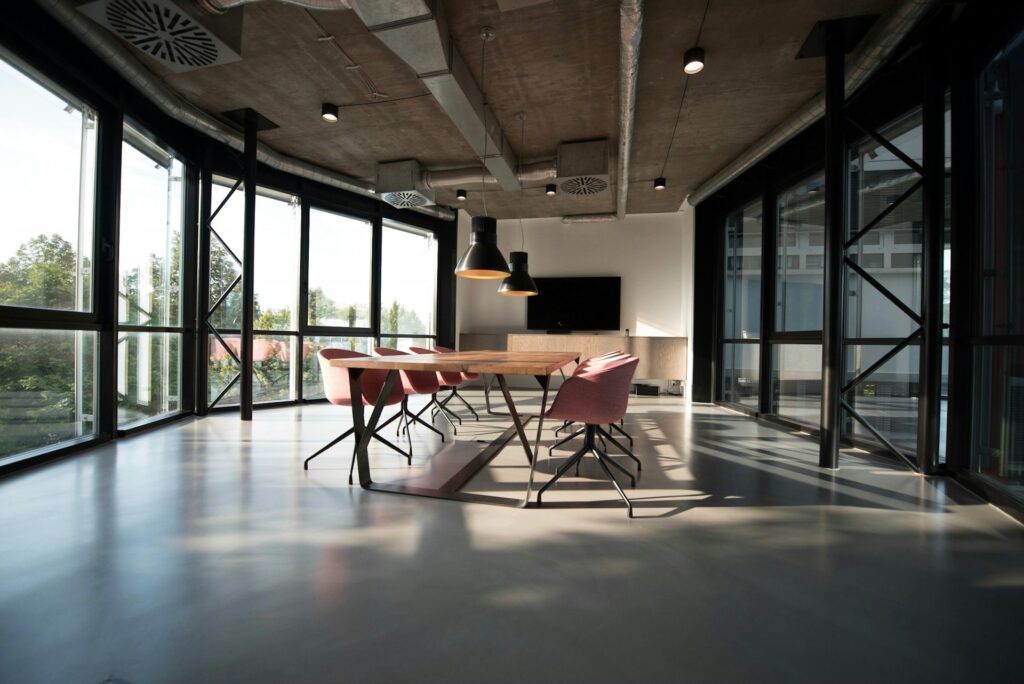
Think Before You Print
Printing endless copies of documents is not only costly but it wastes a lot of energy, too. It’s estimated that a ton of recycled paper saves 17 trees, highlighting just what a good idea it is to pledge to only use recycled paper at work.
Better still is to make moves for your office to go entirely paperless where possible. As reported by WWF “the average UK office worker prints 6,000 sheets of paper a year, of which around 62% is wasted or unnecessary”. As such, endeavour to deploy email, Slack and other online platforms thoughtfully and meticulously to reduce your company’s physical paper trail.
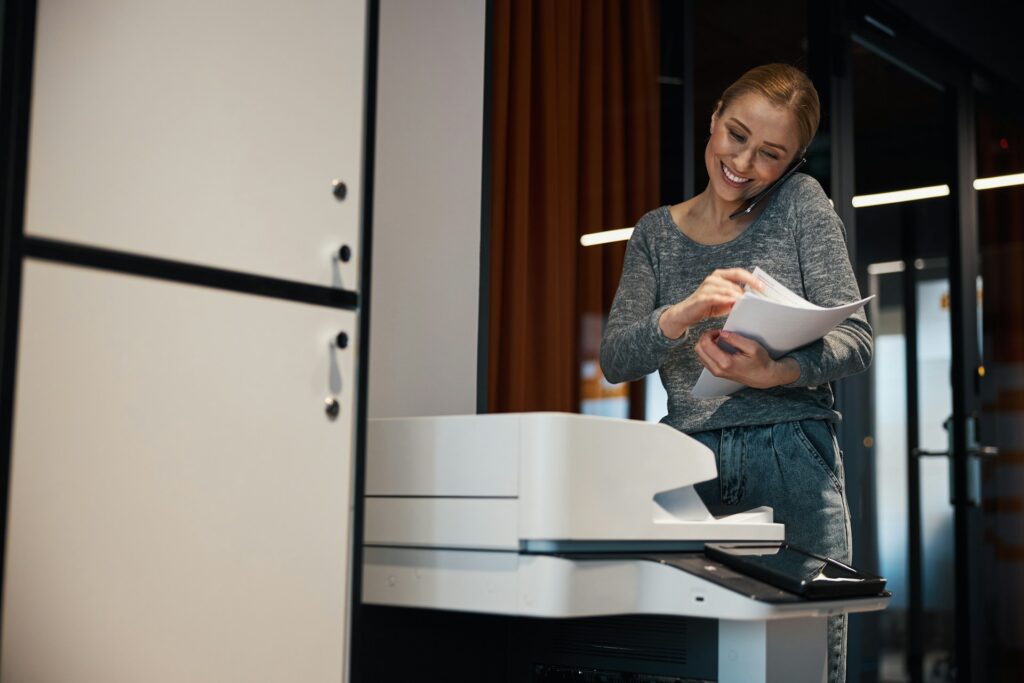

Make Recycling & Waste Disposal Easy
Switching your desk bins to recycling bins and ensuring that they are used correctly should be an easy task when so many of us now recycle at home. Take these good habits into the workplace and really make a difference to the environment.
You should also be thinking about the manner in which your company disposes of other forms of waste that can’t necessarily be easily recycled. Sorting your business waste into separate commercial bins will also massively help out the environment because now your paper and cardboard can be successfully recycled.
Maintenance Matters
Making sure that all office equipment is serviced and kept in working order is essential to energy efficiency. From computers to fridges and printers to microwaves, if an appliance is correctly serviced and kept in good condition, it makes it work more efficiently and results in a lower running costs, too.
On the flip side, if you’re using faulty or outdated energy sucking appliances, then you’re going to be contributing to increased energy bills, a greater office carbon footprint, and, potentially, less clean air in your business premises.
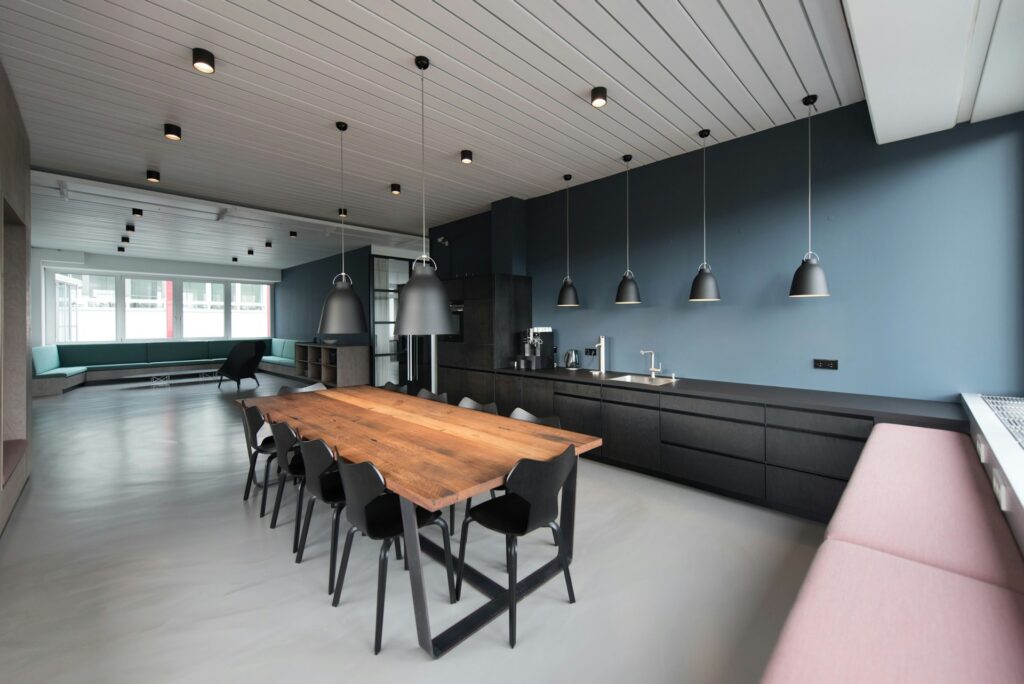
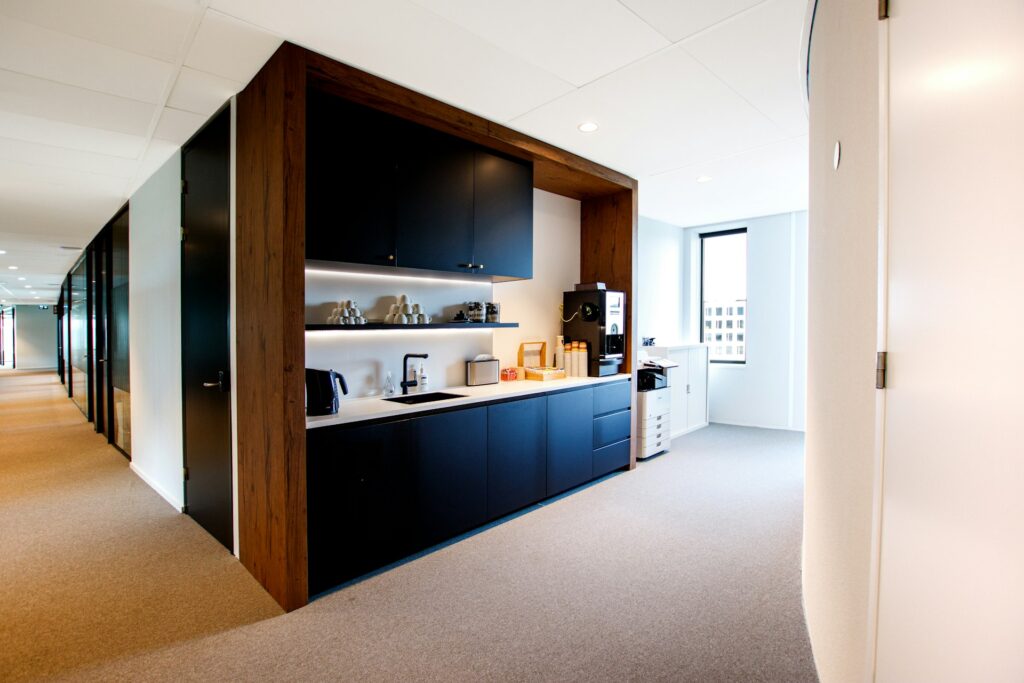

Careless Kettle Use
Speaking of appliances, if there’s one that gets used relentlessly in any and every office, it’s the kettle. Tea and coffee breaks are a favourable time of the day in a busy office, but the kettle is one of the most energy-wasting appliances in the workplace.
Did you know that over a the span of 47-year career, the average British office worker will drink 24,648 cups of tea? In an workplace where caffeine is high in demand, the careless use of the kettle can become greatly unsustainable, so make sure you’re not just boiling a full kettle for a single cup; instead, offer to do a round and encourage others to do the same.
If you are going to make a ‘selfish cup’, don’t overfill the kettle as it will have to use an unnecessary amount of energy to boil the water. Indeed, as reported by The Times, research has found that tea drinkers fill their kettles with twice as much water as they need on average. Don’t be that guy.
Downsize
The days of sprawling, half-empty offices are thankfully becoming a relic of the past. In 2025, businesses are increasingly recognising that maintaining more space than necessary isn’t just costly—it’s environmentally irresponsible. Each additional square metre requires heating, cooling, lighting and cleaning, significantly increasing your carbon footprint.
Consider adopting a flexible approach to your workspace. Rather than committing to a large, permanent office that sits partially vacant most days, embrace the concept of ‘right-sizing’. This means carefully assessing your actual space requirements and adjusting accordingly.
Many forward-thinking companies are now using office spaces that can be reconfigured based on daily needs. Modular furniture, movable partitions, and multi-purpose areas allow you to maximise efficiency without wasting resources. Booking systems for desks and meeting rooms ensure you’re utilising every corner of your space effectively.
For smaller businesses or those with fluctuating team sizes, consider shared workspaces where you pay only for what you use. As the office space rental platform Zipcube sagely intone, these environments typically prioritise sustainability, with many boasting impressive green credentials like renewable energy sources, efficient waste management systems, and thoughtful material choices.
By downsizing thoughtfully, you’ll not only reduce your energy consumption and waste generation but also create a more connected, collaborative atmosphere that may well boost productivity and staff wellbeing. It’s a win for your business, your team, and the planet.
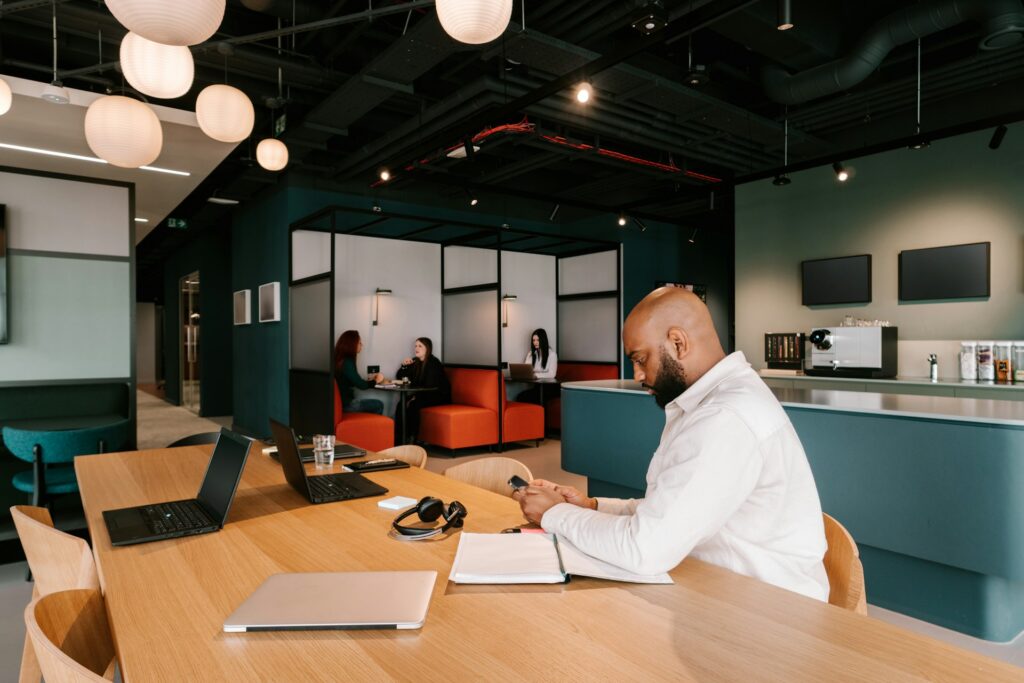
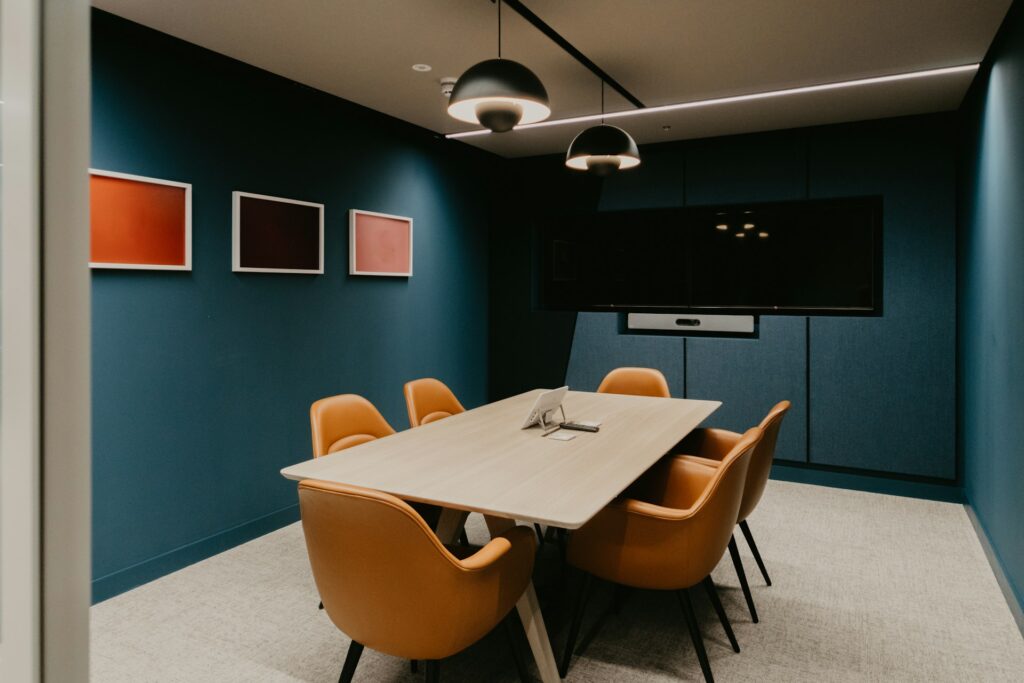
Or, Work From Home
Going green can save money for you and your business. Moreover, it can improve your workplace culture. If you’re looking to take a greener approach to your office, you may also want to consider moving your office entirely. There are a number of co-working office spaces out there taking green initiatives to a whole new level.
Also, consider encouraging your employees to work from home where possible, the environmental benefits of which are many. As Science Focus reports “Working from home can reduce both travel emissions from people’s commutes and save the need to heat, cool, or light offices”.
Forbes also reports that one “study found that working from home four days a week would reduce the amount of nitrogen dioxide, which is the main pollutant generated by traffic emissions, by around 10%”.

Become A Certified Sustainable Business
Finally, consider becoming a certified sustainable business. This means taking steps to ensure your operations are environmentally friendly and having the official credentials that prove it.
As the WWF writes, “Becoming certified to the international standard on Environmental Management (ISO 14001) demonstrates commitment to continuous improvement of environmental performance, reducing your negative impacts and increasing efficiency”.
Not only will this show your customers that you’re doing good things for the environment, but it will attract like-minded employees that care, too.

The Bottom Line
Going beyond your office walls can amplify your sustainability impact. Consider choosing suppliers who share your environmental values and use ethical business practices—this extends your green footprint throughout your supply chain. Show solidarity with global environmental initiatives by participating in events like Earth Hour, which unites businesses worldwide in a visible commitment to our planet.
Engage your team more deeply by organising volunteering days where staff can give back to local environments through activities like litter picking, tree planting, and biodiversity projects. These hands-on experiences not only benefit your surroundings but foster team building and a genuine connection to sustainability principles. Additionally, supporting local, small and independent businesses reduces transport emissions and strengthens your community’s resilience.
Remember, creating a sustainable office isn’t just about reducing your carbon footprint—it’s about fostering a culture where environmental responsibility becomes second nature to everyone in your workplace. The steps you take today, however small, contribute to a healthier planet for all of us tomorrow.





